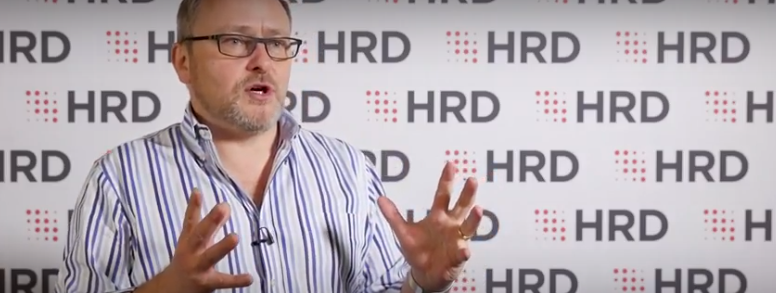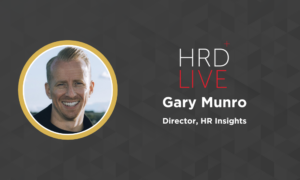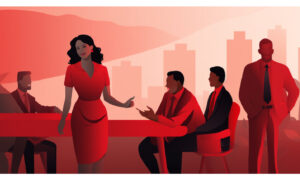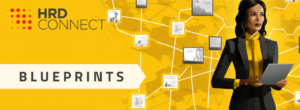Do what you love, and you’ll always be motivated
- 9 Min Read
Being within a career you love will inevitably make you better and more interested in your job. For Tim Munden, Chief Learning Officer at Unilever it’s the single most important part of any role – it’s the way he chose his career.
- Author: Emily Sexton-Brown
- Date published: Jul 24, 2018
- Categories

Learning is arguably one of the most life-changing experiences any human being can go through, learning new skills, languages, behaviours and cultures make our lives a much richer experience. Tim Munden speaks exclusively with HRD Connect about the biggest challenges he faces, quashing rigid learning structures and why having a career you love will benefit you and everyone around you.

Learning and development is about developing the people within any organisation, it’s the art of helping them nurture new skills ensuring that they’re roles are ever changing reflecting the new world of work.
How did you start working in HR?
My first career was in the Army; they paid for my education, however I got injured finishing my training at Sandhurst and I was retired by the age of 22 – which wasn’t the plan.
I felt a bit lost at that point, having decided at 15 to be a solider and my short career ending at just 22. I wasn’t sure what to do; I met someone through my family who changed my life by asking me two questions; what do you love? and what do you want to learn about? His point was that if you answer those questions you’ll always be motivated because you’re doing what you love, and you’re interested in.
This is the first time I came across purpose, which is now a large part of the work that I do. My purpose comes from loving people and wanting to understand how you can create communities and companies that enable everyone to be the very best they can be.
That’s how I came to the decision of what I wanted to do; helping people through leadership and team development. Originally, I thought I’d run my own outdoor development centre, and to do this I needed to get businesses involved to make it profitable. However, I needed to get some business experience. I knew that if I was going to get into business I would go into HR because it’s focused on people. I did a Masters in HR and applied to Unilever as I knew it was a good company for values and development because my brother and parents had all worked for Unilever. I never got around to leaving.
 In my time at Unilever, I’ve managed to really follow my purpose. Over the years I’ve spent a lot of time, with Unilever’s support, doing non-profit leadership development with young people. Now, as Chief Learning Officer I get to focus entirely on developing people; it’s the same purpose, same vision – but just looks different.
In my time at Unilever, I’ve managed to really follow my purpose. Over the years I’ve spent a lot of time, with Unilever’s support, doing non-profit leadership development with young people. Now, as Chief Learning Officer I get to focus entirely on developing people; it’s the same purpose, same vision – but just looks different.
I’ve been at Unilever for 25 years now, I’ve worked in Belgium and the Netherlands, in the U.S. across North and South America and done several other UK, European and global Unilever roles before starting the current role here in London.
What should be the very top of all HR agendas?
I think the HR agenda should be a question – and that question should be, how can we help our people to be the very best they can be within the context of that organisation’s purpose. Maybe the other way of looking at it is – what does the business need from these people?
Once you’ve asked that, you break it down into more pieces – there is always going to be a focus on wellbeing; people often think that this is about helping people with difficulties, but it isn’t just that. That’s a component but it’s about generating the energy to perform and creating the energy to change? It takes a lot of energy. There must be a strong connection to purpose; what is the purpose of this organisation? How can you help people to connect with that from their own purpose?
The second consideration is defining just what the organisation is. I think this is one of the interesting questions of our time because we’re moving out of a long period where we built organisational structures like pyramids with few people at the top and lots of people working for them. This gave us things needed at the time; strength, stability, and structure.
Those things were quite good if you’re as busy as our founder William Hesketh Lever was in 1924 –if you consider running a large company in those days you needed structure because it was a very different kind of world. Over time things have changed, if you now have too much structure it makes a company slow and inefficient. When you start adding lots of interfaces it can make everything rather complex – the leadership mindset becomes command and control.
Therefore, in the HR agenda we need to consider just what is the right way of organising? What brings structure as well as speed and fluidity? Then it comes down to behaviour, behaviour is what unites organisations now. If you have people who understand the shared purpose, the strategy, and then they bring their different skills to the party, it’s fluid, and that’s the future.
“Curiosity is a life skill”
The next part of the HR Agenda is how to nurture the skills of your people, how do you accelerate that beyond simply moving through roles in a standard career? How do you fully nurture the talent that you have?
Next, for me there is a very specific question around leadership; when you’ve got the energy and the way you’re going to organise clear, and you are building the right skills and experiences then you’ve got to work out who are the right leaders? If you get those four things right you’re probably in a very competitive place. All of it rooted on what is this organization here to do and how you help people be the very best at what they do.
“You can’t organise your way out of chaos”
Do you think we previously needed rigid structures to learn?
Yes, it was phase that we are now moving out of. These things are never black and white, but we’re moving from a phase that really helped and gave us structure and stability, but the world wasn’t moving nearly as fast then. It wasn’t as chaotic as it is now, and you can’t organise your way out of chaos. We need to create fluidity with simple principles to work to – common ways of working, shared purpose and ultimately let people be free.
What is overlooked by HR?
The next dimension is really understanding how what is inside each human being shapes what they do. HR have talked a lot about mindset, but we need to go deeper than that, into what we call the ‘the inner game’. We’ve divided leadership into the ‘inner game’ and the ‘outer game’ the ‘inner game’ has three parts.
- Purpose and service; this is the foundational energy – the real reason that you’re there;
- Personal mastery; the ability to manage your mood, core emotional intelligence and managing your leadership presence and awareness;
- Agility; having curiosity about the world, and the courage to learn and change.
I think this whole area has been overlooked for years which is why when we devised our new leadership approach we decided to make this very explicit. What takes place inside people really matters, it’s about so much more than mindset alone. For example, when you’re talking to someone are you present? Research suggests that having a mobile phone on the table when you’re talking to someone reduces trust by 60% – purely by having the phone there. Imagine you are sitting with your line manager and they get their phone out – the conversation suddenly feels conditional – how do we help people to really make their leadership presence felt so the people around them feel inspired? As HR we need to evolve the tools and language to help develop the inner game – being present and generating real connection with what is happening within and around us.
Can we learn softer skills or are they innate?
I think we can learn them.
Of course, we all come with a different toolkit, different personalities which are very valuable. But we all have the ability to be present and to connect with what is happening in and around us. This enables us to work with people who are different from us and come together to do things we could not do alone. I really think most people can, with some training and support if they need it. That’s the only way things get done, also in the world we are entering now – workforces are going to become more fluid. We can see it now, 50% of the workforces in the US is said to be doing gig style work, that inevitably brings about different types of workplaces and the ability to connect with people is going to be important. We are entering an exciting period where the ‘inner game’ of people and the ability to build relationships is going to matter more than ever.
In this current climate – what are your biggest challenges?
So, I think there are a few challenges. We touched on this before – but a key one is wellbeing. This is a challenge in our wider society and so is a challenge for anyone who employs people. I think we need to focus hard on that. It really is concerning; according to the World Health Organisation, depression and anxiety are one of the biggest causes of the disease burden in the world, and is a huge cost to society and economy. I don’t think any of us really fully understand this. There is much more work to be done, and it’s certainly a priority for Unilever.
“Fear and insecurity are the biggest crushes of creativity”
Secondly, skills. Some of the research indicates that the lifespan of a skill is 2.5 years and people must relearn all the time – there is some real truth to that. How do you help people learn, and relearn? How you help them to understand that curiosity is a life skill and inspire people to really want to continue to learn. Fear and insecurity are the biggest crushers of creativity and growth and we need to create the courage and confidence for people to recognize that they don’t know everything, that there will always be gaps emerging in their skills and knowledge. That is OK – you just need to invest time in continually learning. Then a virtual cycle emerges – humility brings learning which brings the confidence that you can thrive in a fast changing world. In the end, for organisations and individuals, that is the key.









